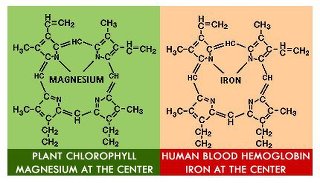This is a very frequently asked question. Its also a frequently not asked question in scientific research where aromatherapy is equated often with a massage in the local spa to the detriment of the scientific enquiry in hand. Oxidised oils are used, the botanical origin is sometimes a mystery. Help is at hand. Take a class! Below are oils for particular bodily systems starting with skincare and nervous conditions, the areas where essential oils are of frequent use. For the hardy the class boards showing how we got there are below too.
Benzoin you will see appears in skincare but is not in other categories. Benzoin is however a useful fixative allowing the aromas of more volatile oils to persist longer so may well find its way into aromatherapy and natural perfume blends for this reason alone. I would stress that this is not science nor aromatherapy either! However for the student new to the oils this is a useful teaching device to work through. A professional aromatherapist seeks to select oils appropriate to the individual in front of them based on their training and experience. All this does is look at the most versatile oils in each category. The methodology was simply to take a commonly recognised Shirley Price table and count the mentions the oil received within each care category to arrive at the most versatile oils.
So the table of most versatile oils by care area. Comments on the table are below.
Skincare
Benzoin, cedarwood, chamomile german, chamomile roman, clove bud, frankincense, geranium, juniper, lavender, lemon, melissa, myrhh, patchouli, rose otto, sandalwood, bergamot, marjoram sweet, tea tree
Nervous
Basil, bergamot, chamomile roman, clary sage, frankincense, geranium, lavender, marjoram sweet, melissa, peppermint, pine, rose otto, rosemary, sandalwood, thyme sweet, ylang
Digestive
Basil, black pepper, caraway, coriander, clove bud, dill (not versatile but a famous carminative for babies) fennel, geranium, ginger, lemon, mandarin, melissa, niaouli, peppermint, rosemary and thyme sweet
Genito urinary
Chamomile german, clary sage, fennel, sage, thyme sweet
Circulatory muscles joints
Basil, cajuput, cham roman, cypress, frankincense, geranium, juniper, lavender, lemon, marjoram sweet, niaouli, nutmeg, peppermint, rosemary, sandalwood, sage, thyme sweet, valerian
Respiratory
Black pepper, cajuput, clovebud, cypress, dill, lemon, marjoram spanish, marjoram sweet, niaouli, peppermint, pine, rosemary, sage, tea tree, thyme sweet
Comments
Starting with skincare
As above Benzoin is versatile in skincare but not in other care areas. Cedarwood similarly. They are relatively specific to skincare. Chamomile German finds skincare and genitourinary use. Chamomile roman finds skincare, nervous and CMJ (circulation, muscles and joints) use. Clove bud skincare, digestive and respiratory use. Frankincense skincare, nervous and CMJ use. Geranium is a versatile oil which finds much use within aromatherapy including skincare, nervous, digestive and CMJ uses. Juniper skincare and CMJ. Lavender is another versatile oil with skincare, nervous, and CMJ uses. lemon for the treatment of warts and verucae in skincare and digestive care. Melissa is useful in skincare and produces an excellent hydrolat, also finding nervous (excellent for agitation) and digestive use. Myrhh finds skincare uses. Patchouli finds skincare use. Rose otto finds skincare and nervous uses. Sandalwood finds skincare, nervous use and CMJ use. Bergamot finds use in skincare as a herpes treatment and in nervous care. Sweet Marjoram finds use in skincare as an athletes foot treatment, nervous care as sedative, CMJ and respiratory. Tea tree finds use in skincare as an athletes foot treatment and respiratory. Unlike other oils Tea Tree is not readily absorbed by the skin and so makes an ideal antifungal footcare treatment. Always take a seriously fungal nail to a podiatrist as it may be symptomatic of a more serious condition.
Nervous care
hello Clary Sage, hello Peppermint, also digestive and cooling in CMJ. hello Pine also with respiratory uses. hello Rosemary (Rosemary for remembrance), also digestive, and CMJ. hello Ylang.
Digestive
hello Black Pepper (improves the swallowing reflex), caraway, coriander, dill and fennel, ginger, mandarin, niaouli (also in CMJ).
Genito-urinary
hello Sage (also in CMJ)
CMJ
hello Cajuput (also respiratory), Nutmeg, Valerian
Respiratory
No newbies.
I would stress this exercise solely looks at the oils that are most versatile in the care uses. We can then go to the individual oil profiles to see their true range of individual uses.
Just click on a name for the wikipedia profile.
Success in your studies!
therapeutic properties of the functional groups
botany
then into the skincare and massage carriers
essential oils for skincare
and then into the uses cross reference
Bless this mess. The oils and the use areas
Indications reading
Glossary reading
pulling it all together
A protocol for clinical aromatherapy use
If you are thinking of taking the Sp day class in aromatherapy to master the basics rest assured the the slides and handouts are more colourful than the boards!
we are now (at last) ready to consider the researched uses of essential oils
The leading author and researcher into the uses of essential oils in Aromatherapy is Robert Tisserand. His upcoming seminars and online learning can be found at
https://www.facebook.com/RobertTisserandEssentialTraining
A new edition of his book Essential Oil Safety will be available in 2013 including over 4000 research references
Ian Brealey


















No comments:
Post a Comment